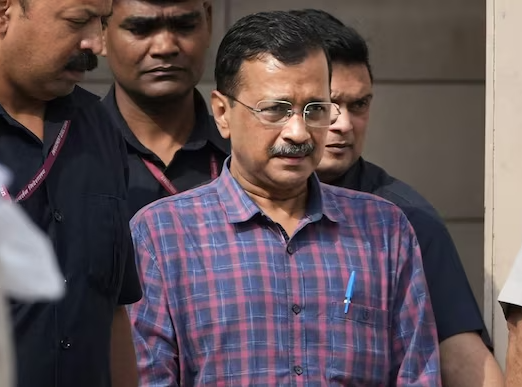Delhi Chief Minister and Aam Aadmi Party (AAP) national convenor, Arvind Kejriwal, was formally arrested by the Central Bureau of Investigation (CBI) on Wednesday. The arrest took place at the Rouse Avenue Court following a hearing related to the excise policy case. Accompanied by his wife, Sunita Kejriwal, Kejriwal was brought to court by the CBI earlier in the day. This arrest follows a series of legal proceedings where Kejriwal had previously been examined in Tihar Jail and had his statement recorded concerning allegations stemming from Delhi’s now-scrapped excise policy of 2021-22.

The CBI’s move came after the Delhi High Court stayed Kejriwal’s bail order, leading him to withdraw his plea challenging the decision in the Supreme Court. The high court expressed concerns over the trial court’s handling of the bail order under the Prevention of Money Laundering Act. Kejriwal has been in custody since March 21, barring a brief period of interim bail granted for election campaigning. The charges against him revolve around purported irregularities in the aforementioned excise policy.
Political Reactions and Debates:
Kejriwal’s arrest has ignited a flurry of political reactions and debates. The AAP and its supporters have criticized the legal proceedings as politically motivated. Akhilesh Yadav, a prominent political figure, accused the Bharatiya Janata Party (BJP) of orchestrating an injustice against the Delhi Chief Minister. Yadav specifically highlighted the timing of Kejriwal’s arrest, suggesting it was a calculated move by the BJP to thwart Kejriwal just as he was poised to be released from jail.
Broader Implications:
Kejriwal’s arrest marks a significant moment in Delhi’s political landscape, with profound implications for both the AAP and opposition parties. The legal battle and the ensuing public scrutiny raise important questions about governance, transparency, and accountability within the capital city’s administration. The arrest also underscores the contentious nature of Delhi’s political environment, where legal and political strategies are often deeply intertwined.
Conclusion:
As the situation unfolds, it remains to be seen how Kejriwal’s arrest will affect the AAP’s standing and the broader political dynamics in Delhi. The case has already sparked intense public interest and debate, and it is likely to remain a focal point in the city’s political discourse for the foreseeable future. The ongoing legal proceedings and their outcomes will be critical in shaping the narrative around governance and the rule of law in Delhi.

